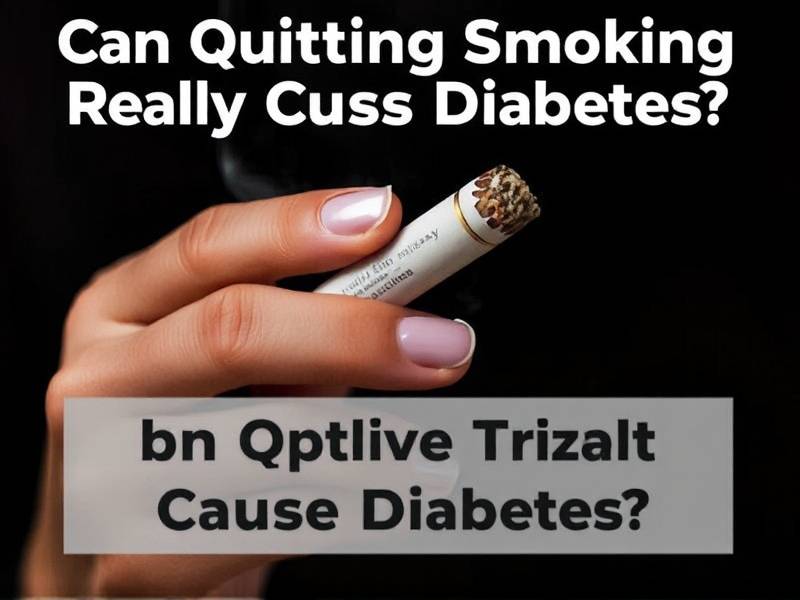Can Quitting Smoking Really Cause Diabetes?
Unveiling the Truth: Can Quitting Smoking Trigger Diabetes?
Introduction: The decision to quit smoking is often a monumental one, with countless individuals aiming to improve their health and well-being. However, there's a lingering concern that kicking the habit might have unforeseen consequences, such as triggering diabetes. In this article, we delve into the research and explore whether quitting smoking can really cause diabetes.
Understanding the Link: Myth or Reality?

Myth #1: Nicotine Dependence Protects Against Diabetes One common belief is that nicotine, found in cigarettes, can actually protect against diabetes. However, this notion is not supported by scientific evidence. In fact, studies have shown that nicotine can increase blood sugar levels temporarily but does not provide long-term protection against diabetes.
Myth #2: Withdrawal Symptoms Trigger Diabetes Another myth suggests that the withdrawal symptoms associated with quitting smoking could lead to diabetes. While withdrawal symptoms like increased appetite or stress can affect blood sugar levels temporarily, they are not a direct cause of diabetes.
The Scientific Evidence
Recent studies have provided some clarity on the relationship between quitting smoking and diabetes. Here are some key findings:
- Increased Risk of Developing Type 2 Diabetes: Research indicates that individuals who quit smoking may experience an increased risk of developing type 2 diabetes in the short term. This is believed to be due to changes in metabolism and weight gain that often accompany smoking cessation.
- Weight Gain and Insulin Resistance: Many smokers gain weight after quitting, which can lead to insulin resistance—a condition where cells become less responsive to insulin—a key factor in type 2 diabetes.
- Long-term Benefits: Despite the short-term risk, long-term evidence suggests that quitting smoking has significant health benefits and can reduce the overall risk of developing type 2 diabetes over time.
What You Can Do
If you're considering quitting smoking and are worried about the potential risk of developing diabetes:
- Consult Healthcare Professionals: Speak with your doctor or a healthcare provider who can offer personalized advice and support.
- Understand Your Risk Factors: Be aware of your own risk factors for type 2 diabetes, such as family history or obesity.
- Gradual Weight Management: Focus on gradual weight management rather than crash dieting, which can be harmful.
Conclusion:

While it's true that quitting smoking may present a short-term increase in the risk of developing type 2 diabetes due to weight gain and metabolic changes, this does not negate the overwhelming health benefits of kicking the habit. The long-term benefits of quitting smoking far outweigh any potential risks associated with short-term changes in blood sugar levels. Make an informed decision by consulting with healthcare professionals and prioritizing your overall health.
